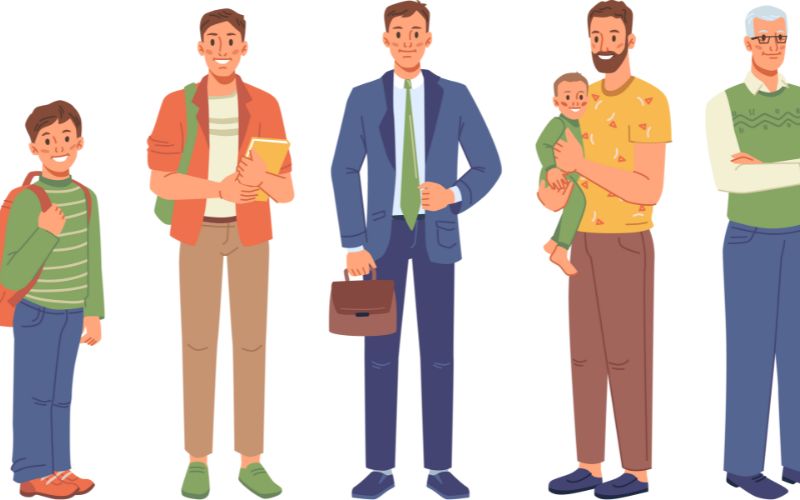Depression is a mental well-being clutter that influences individuals of all ages, sexes, and foundations. It can be activated by a wide extend of components, including hereditary qualities, life occasions, and the chemically awkward nature of the brain. In this article, we will investigate the different sorts of sadness-related mental well-being issues at different stages of life, from childhood through to ancient age.
Childhood
Depression can influence children as young as three for a long time and can show in an assortment of ways, including crabbiness, unresponsiveness, and social withdrawal. Children may too encounter physical side effects, such as cerebral pains or stomach throbs, that cannot be clarified by any basic therapeutic condition.
Teenage Years
Teenagers are at high hazard of creating sadness due to the numerous challenges they confront amid this time, including scholarly weight, peer weight, and hormonal changes. Young people with misery may exhibit signs of fractiousness, weakness, and trouble resting. They may moreover be more likely to lock in unsafe behaviors, such as sedation or liquor use.
Young Adulthood
For numerous individuals, discouragement to begin with shows up in youthful adulthood, ordinarily between the ages of 18 and 25. Youthful grown-ups may encounter a extend of side effects, including a need for vitality, trouble concentrating, and sentiments of sadness. Misery can be especially challenging for youthful grown-ups who are too managing with the push of transitioning into the workforce or beginning a family.
Middle Age
Depression is not unprecedented in middle-aged grown-ups, who may be confronting the stretch of caring for maturing guardians or managing with budgetary weights. Middle-aged grown-ups with misery may involve physical indications, such as unremitting torment or gastrointestinal issues, that cannot be ascribed to any fundamental restorative condition.
Older Adults
Depression is moreover common in more seasoned grown-ups, who may be managing persistent well-being conditions, confinement, or the misfortune of adored ones. Discouragement in more seasoned grown-ups may be mixed up with the common handle of maturing, and can subsequently go untreated. More seasoned grown-ups with discouragement may involve physical indications, such as weakness or misfortune of craving, that can contribute to their general well-being decline.
Treatment Options
Depression is a treatable condition, and there are numerous distinctive approaches to overseeing it. Treatment alternatives may incorporate pharmaceutical, treatment, or a combination of both. Other choices incorporate a way of life changes, such as customary workouts, a sound eat less, and push diminishment techniques.
It's imperative to look for proficient offer assistance if you suspect you or an adored one may be encountering misery. With the right treatment, it's conceivable to oversee misery and lead a satisfying life. Keep in mind, that it's never as early or as late to get offered assistance for depression.
Book a Session with a Psychologist.

Leave a Reply